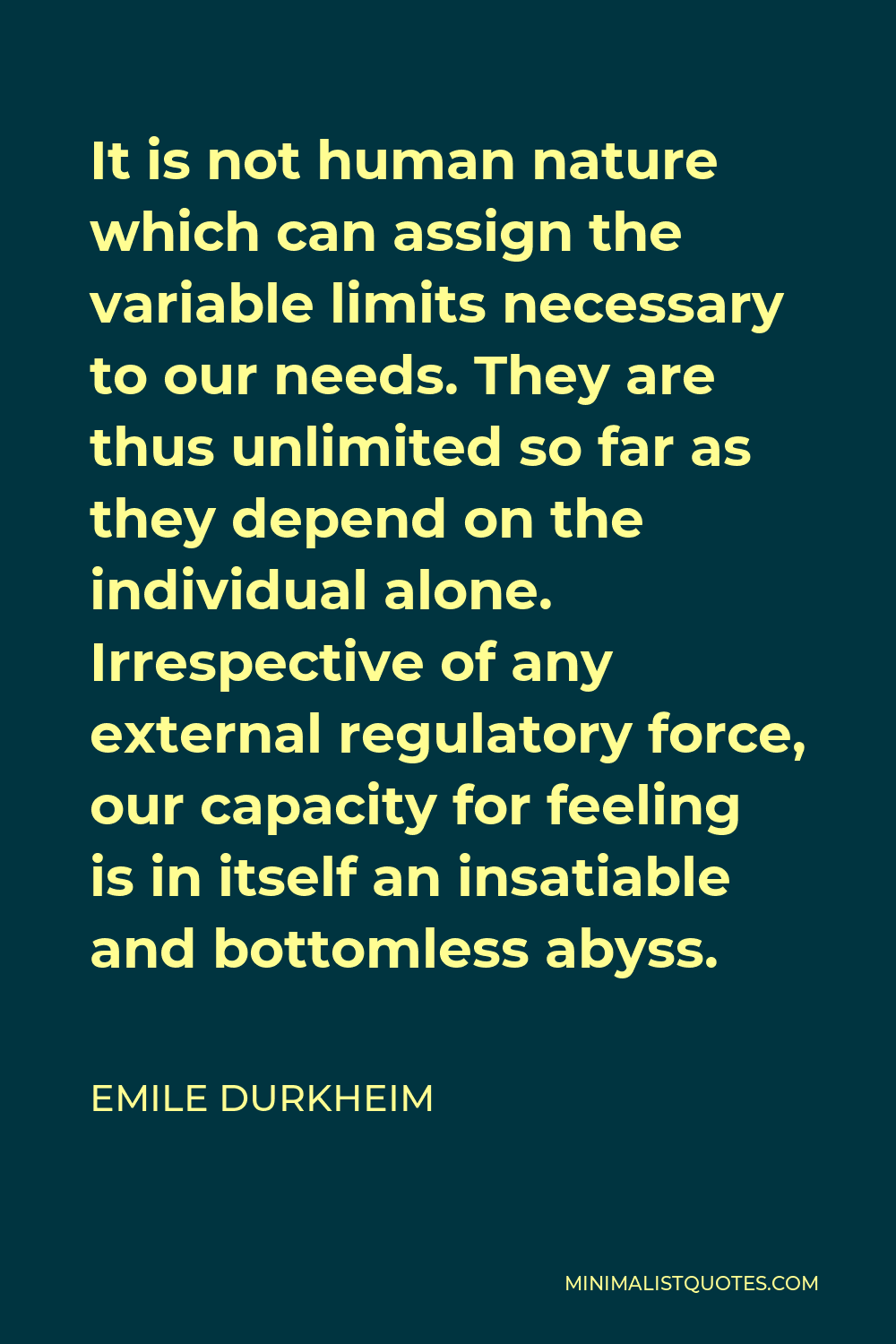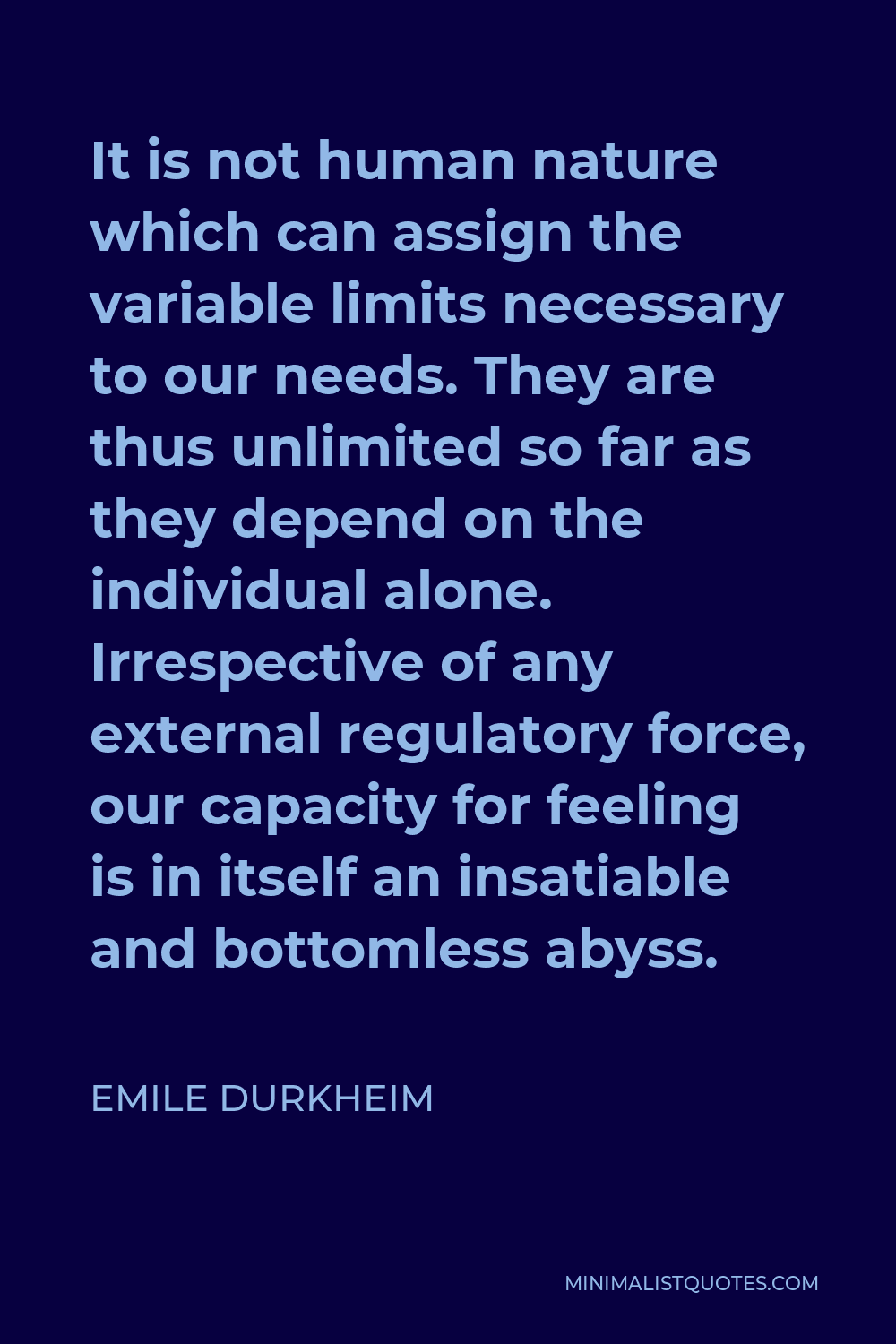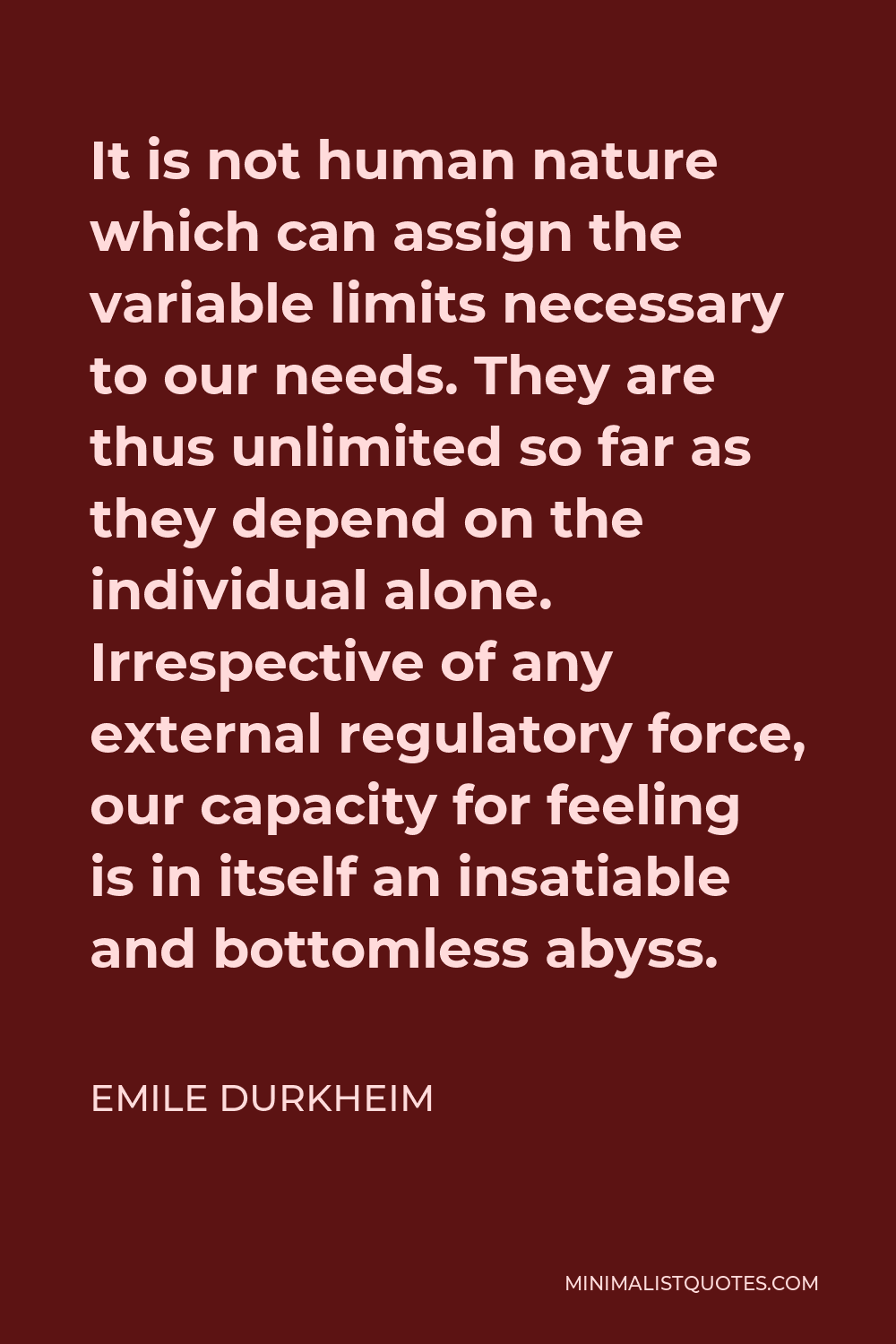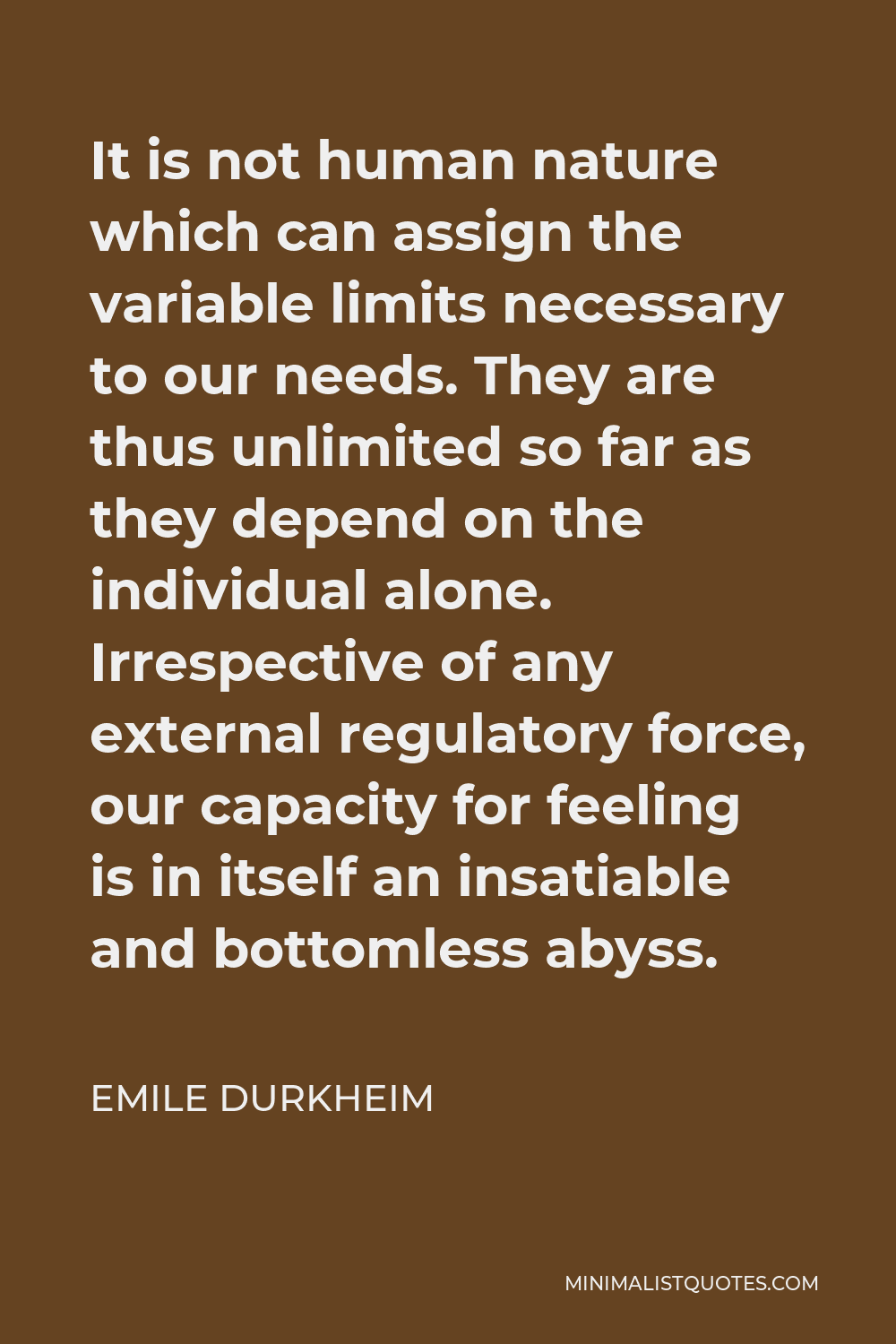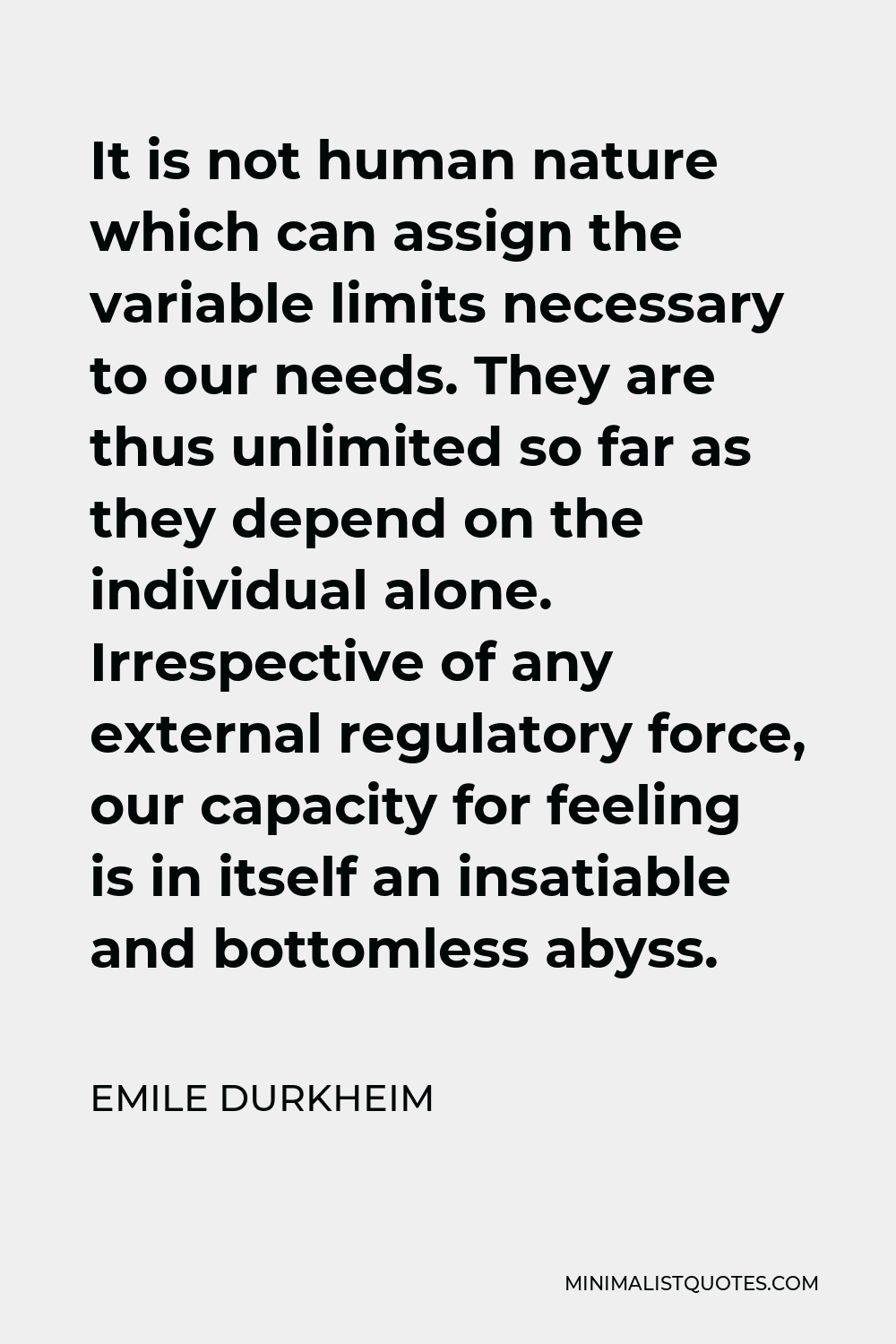The first and most basic rule is to consider social facts as things.
EMILE DURKHEIMIt is not human nature which can assign the variable limits necessary to our needs. They are thus unlimited so far as they depend on the individual alone. Irrespective of any external regulatory force, our capacity for feeling is in itself an insatiable and bottomless abyss.
More Emile Durkheim Quotes
-





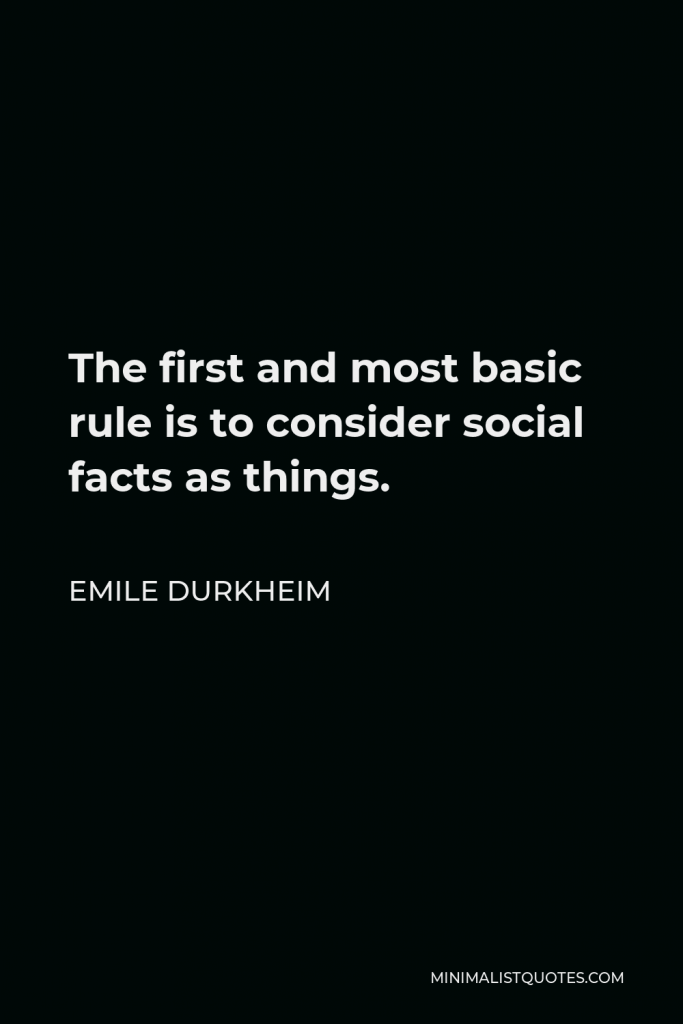

-





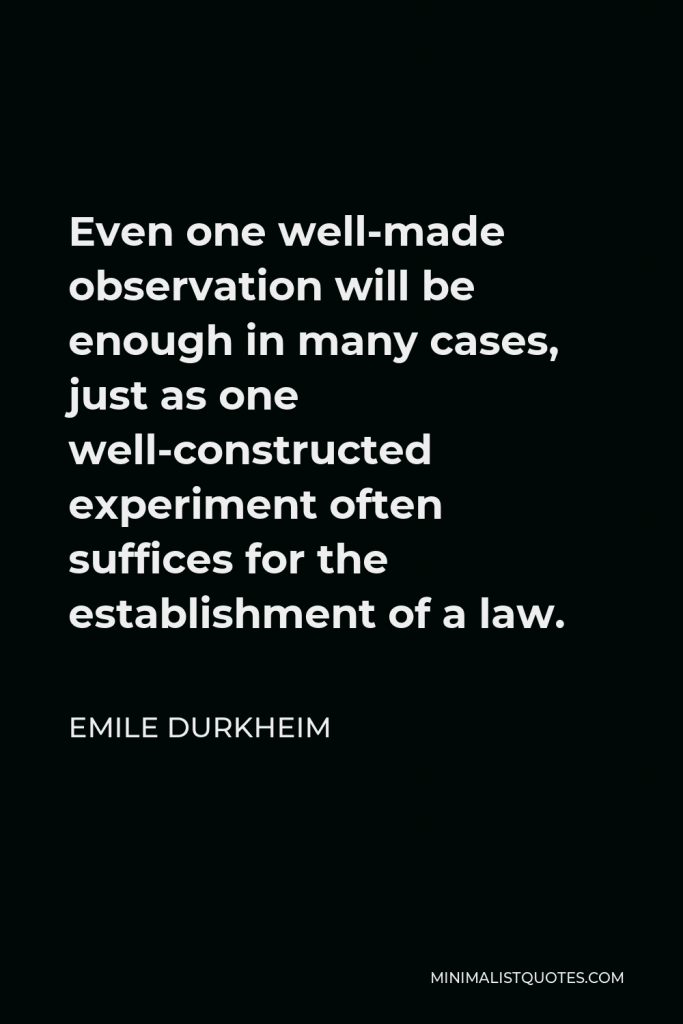

Even one well-made observation will be enough in many cases, just as one well-constructed experiment often suffices for the establishment of a law.
EMILE DURKHEIM -







Man could not live if he were entirely impervious to sadness. Many sorrows can be endured only by being embraced, and the pleasure taken in them naturally has a somewhat melancholy character.
EMILE DURKHEIM -





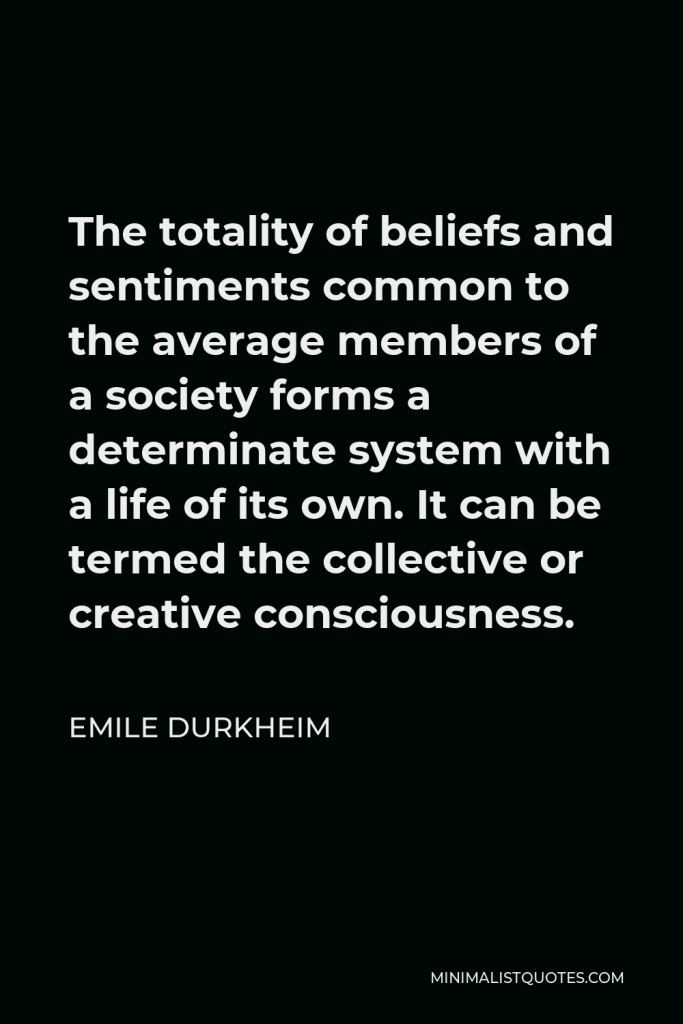

The totality of beliefs and sentiments common to the average members of a society forms a determinate system with a life of its own. It can be termed the collective or creative consciousness.
EMILE DURKHEIM -







An act cannot be defined by the end sought by the actor, for an identical system of behaviour may be adjustable to too many different ends without altering its nature.
EMILE DURKHEIM -





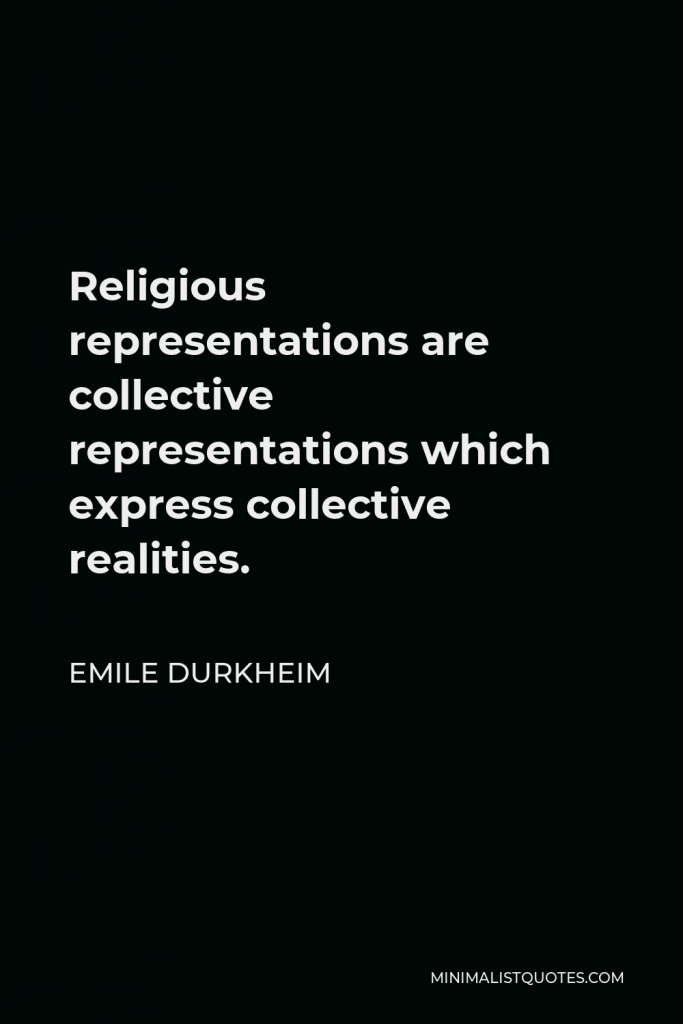

Religious representations are collective representations which express collective realities.
EMILE DURKHEIM -







The wise man, knowing how to enjoy achieved results without having constantly to replace them with others, finds in them an attachment to life in the hour of difficulty.
EMILE DURKHEIM -





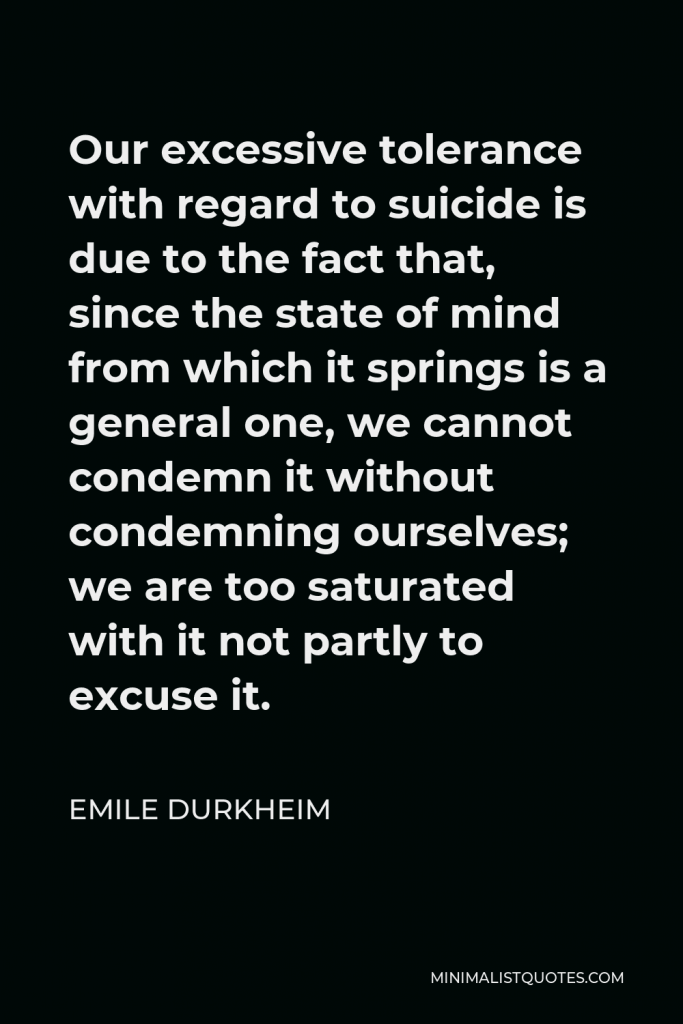

Our excessive tolerance with regard to suicide is due to the fact that, since the state of mind from which it springs is a general one, we cannot condemn it without condemning ourselves; we are too saturated with it not partly to excuse it.
EMILE DURKHEIM -







When morals are sufficient, law is unnecessary; when morals are insufficient, law is unenforceable.
EMILE DURKHEIM -







Maniacal suicide. -This is due to hallucinations or delirious conceptions. The patient kills himself to escape from an imaginary danger or disgrace, or to obey a mysterious order from on high, etc.
EMILE DURKHEIM -







We do not condemn it because it is a crime, but it is a crime because we condemn it.
EMILE DURKHEIM -







Man is only a moral being because he lives in society, since morality consists in solidarity with the group, and varies according to that solidarity. Cause all social life to vanish, and moral life would vanish at the same time, having no object to cling to.
EMILE DURKHEIM -





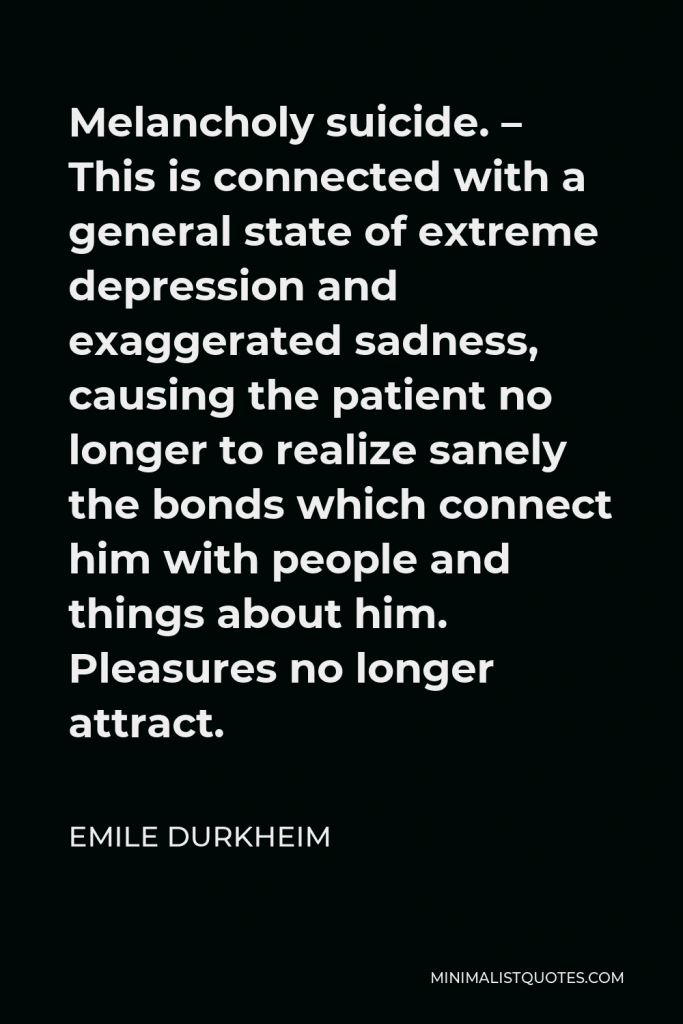

Melancholy suicide. – This is connected with a general state of extreme depression and exaggerated sadness, causing the patient no longer to realize sanely the bonds which connect him with people and things about him. Pleasures no longer attract.
EMILE DURKHEIM -





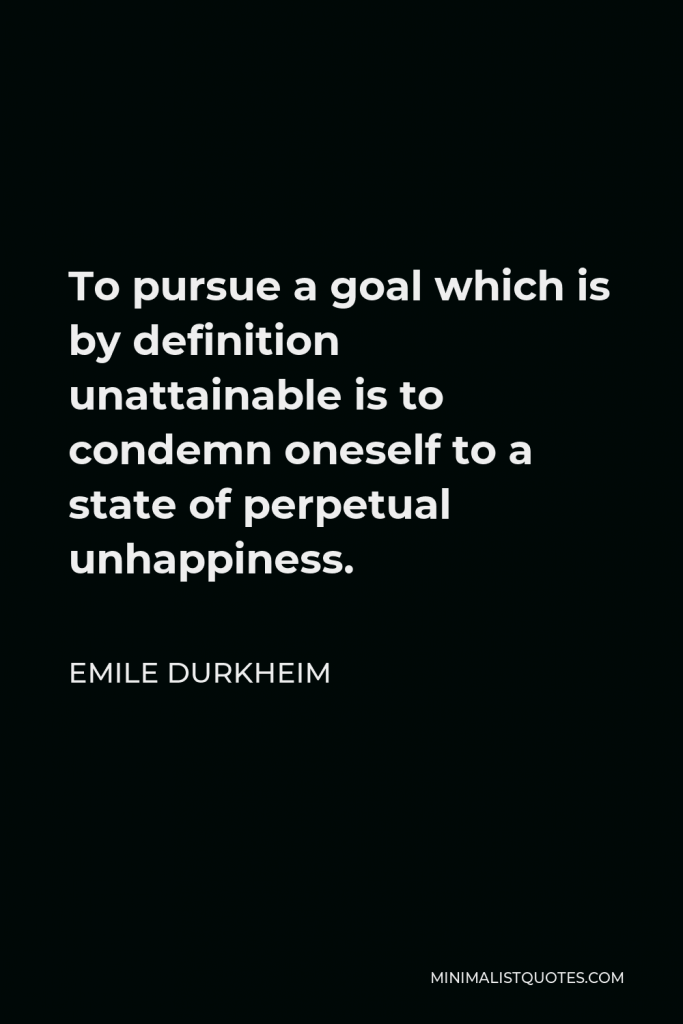

To pursue a goal which is by definition unattainable is to condemn oneself to a state of perpetual unhappiness.
EMILE DURKHEIM -







Faith is not uprooted by dialectic proof; it must already be deeply shaken by other causes to be unable to withstand the shock of argument.
EMILE DURKHEIM -





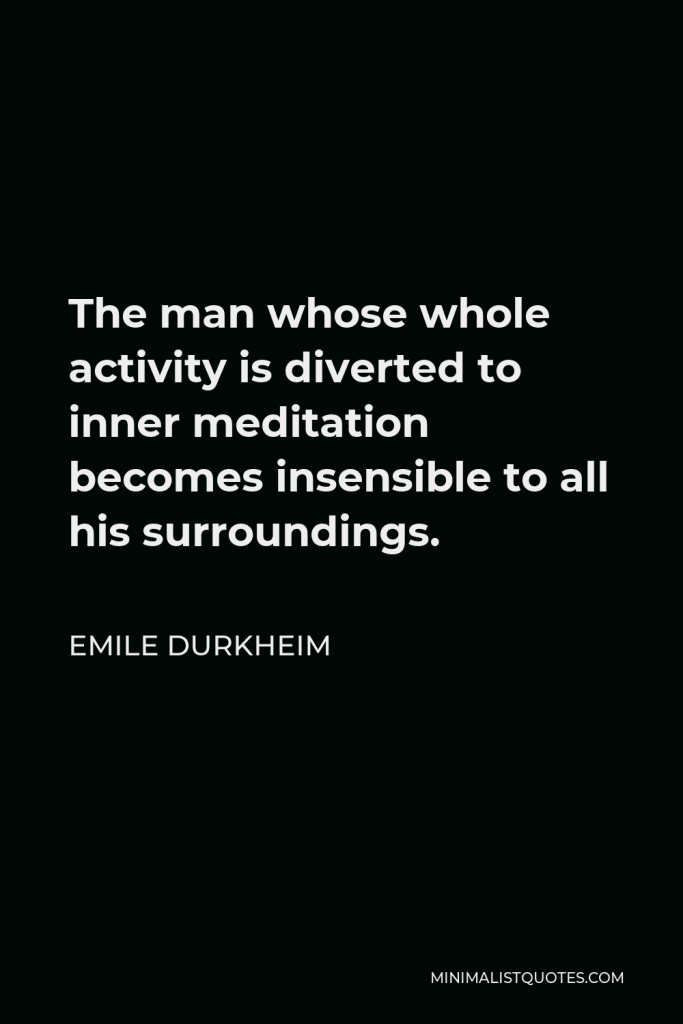

The man whose whole activity is diverted to inner meditation becomes insensible to all his surroundings. His passions are mere appearances, being sterile. They are dissipated in futile imaginings, producing nothing external to themselves.
EMILE DURKHEIM

